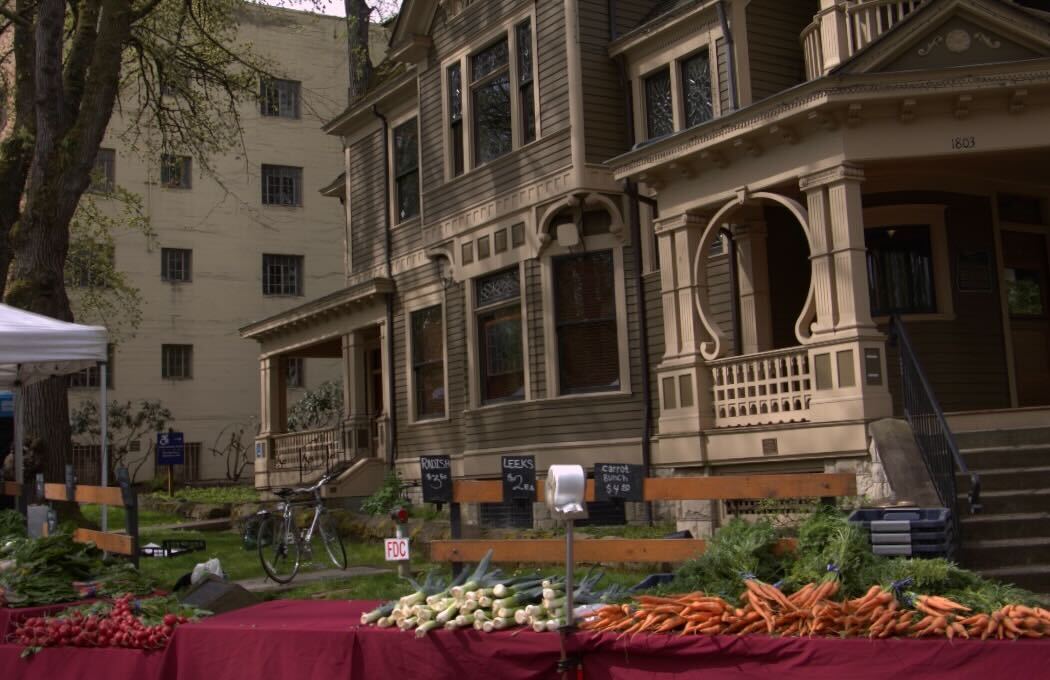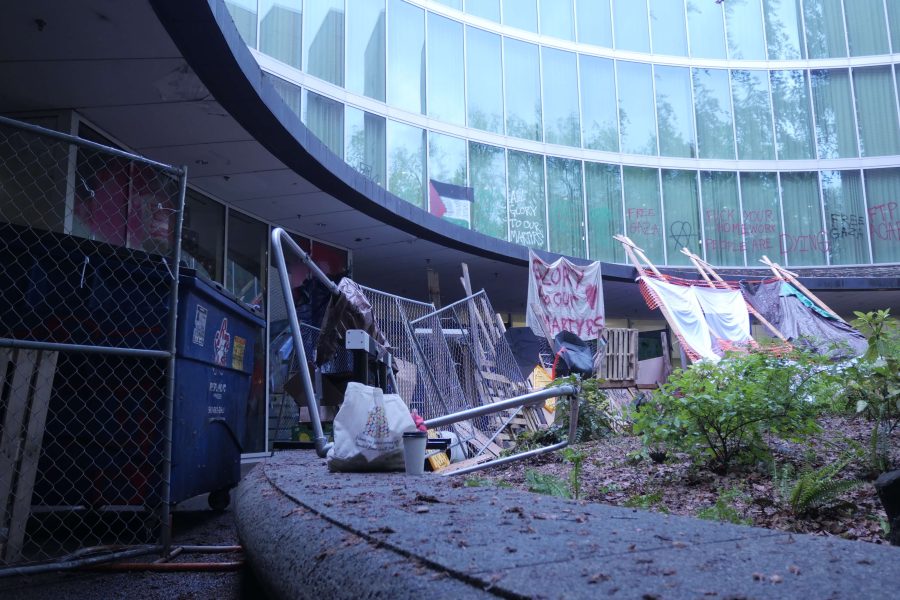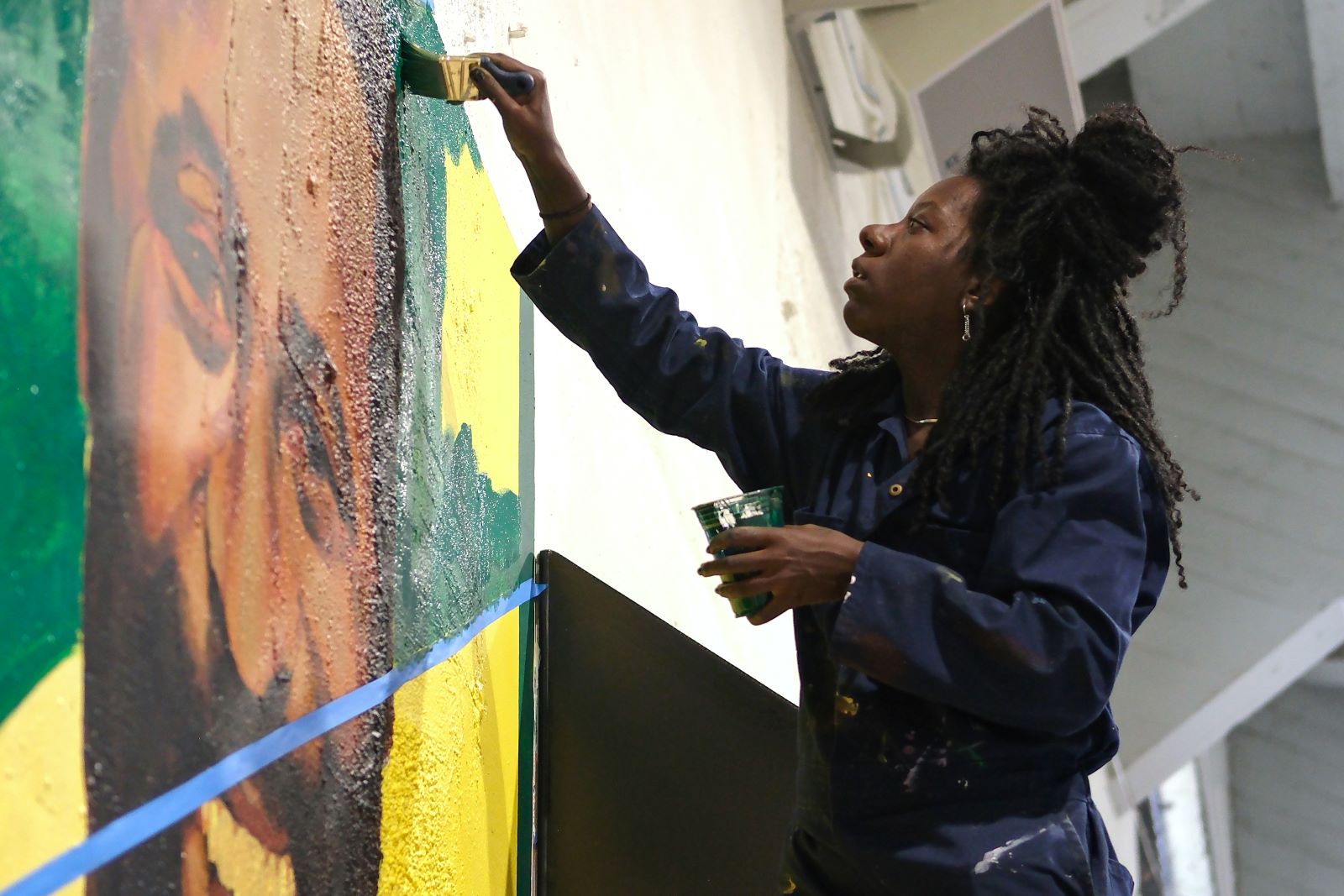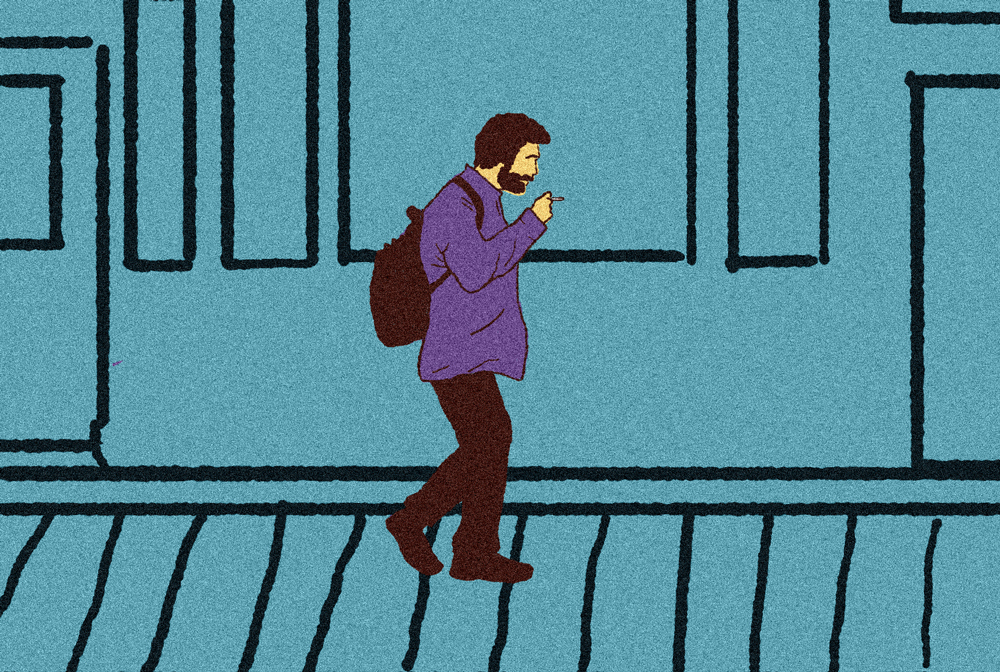Yes, it’s reached 70°F in Portland, so, naturally, the summer clothes have been uncloseted. The pitch on the previously rain-swept streets has jumped an octave. Buckets of rain are traded for buckets of flowers, three for $1.
Winter traded for spring, from Andrew Wyeth’s barren trees to William Morris’ floral furor. Girls, like city nymphs, are draped in Pre-Raphaelite colors and fabrics with indie-band logos on threadbare t-shirts, now unveiled from the thick drapes of vintage trench coat lapels. The South Park Blocks have never been more of a tripping hazard on this sunny Saturday afternoon at the Portland Farmers Market at Portland State.
Even the dogs have removed their Fair Isle sweaters in favor of a more natural look. A border collie embraces their effortlessly chic hair with a minimalist leash and collar—how particularly French.
It’s a beautiful day. God doesn’t even have to break through the clouds to make his golden presence known. Without a single hint of impending gloom in the sky and a sea of sunburnt shoulders, California is rightfully jealous.
It makes the usual Larry David disposition on the world a little more difficult to obtain. Not even that pathetic little sigh, sometimes for no reason in the cold solitary pursuit of intimacy, can be heard—at least, not from me. Just the slightly intimidating, all-powerful-yet-gentle godliness of spring.
Now nature, as I am very aware, has its enthusiasts, but on the whole I wouldn’t say I’m one of them. To me, the great outdoors is simply the unforgiving portal through which you must trespass to get from the bus stop to your front door. That’s what’s wonderful about Portland; interwoven in a tight braid down the back of a twenty-first-century flower child are the city, forests and skateparks.
You watch the classical guitar player. Maybe they know you’re watching them, or maybe they’re unaware. Who are you kidding? Of course, they know you’re watching them.
Suddenly, their eyes dart to yours, and you look away shamefully. You smell the freshly unearthed produce, lavender and smoked meat, but most of all you are despairingly thirsty. Unable to find reprieve, you question waiting 20 minutes in line for your customarily-overpriced beverage.
All the charms of the liberal United States—which, by the way, are unpolarized and unpasteurized—are on display. Moving slowly up and down the walkway, you clasp your hands behind your back as if you were in the Louvre.
Need to embody Anthony Bourdain’s cool elegance and spontaneity? Hit up the fungus stall to add a twist to tonight’s dinner. Need to win over a lover? Feed them the most perfect strawberry you’ve ever seen.
The human ear is naturally drawn to the sound of music. Follow it. Past the current of young parents who guide their children by the shoulders as if they were shopping carts, past the girl selling used books on the staircase, there is a chorus of voices singing songs for Palestine, holding signs and flags with painted watermelons and doves.
I stood and listened with the other onlookers for a while. A mother and her young daughter leaned against each other on a bench opposite the singers. I overheard the mother explaining why they were singing and what it meant, all in terms a child would understand. It made a much stronger impression on me than anything else that day.
And the green—the green is everywhere: the tops of carrots, the covers of books, the cardigan tied around the waist of a busy vendor. Green is the color of spring and rebirth, the color of Oregon and the color of the shoes you wish you’d bought years ago at a thrift store.
But we tend to pull it out by its roots, scrubbing the world clean of it as fast as it grows. The wintertime may mute its vibrancy, but it always comes back with a vengeance. Portland doesn’t kill this green, though. Instead, we let moss and ivy grow along the sides of buildings and the spaces between cobblestones.
Like an inevitable colonizer of nature, you move off the pavement and into the grass, stepping over the dried mud and little white flowers that pepper the ground. You cross the rubicon of exposed roots and impromptu picnics to the other side of the street, finally quenching your thirst with a plastic cup of some holy nectar sold by a guy who looks just like David Foster Wallace.
It costs too much money, and there’s too much ice, but the sun is out, children are laughing and the seller had such a kind face. And goddamn, it tastes, like, really good.






